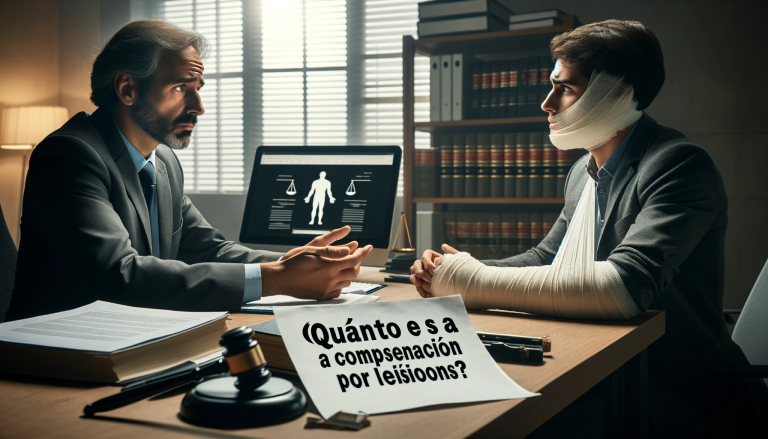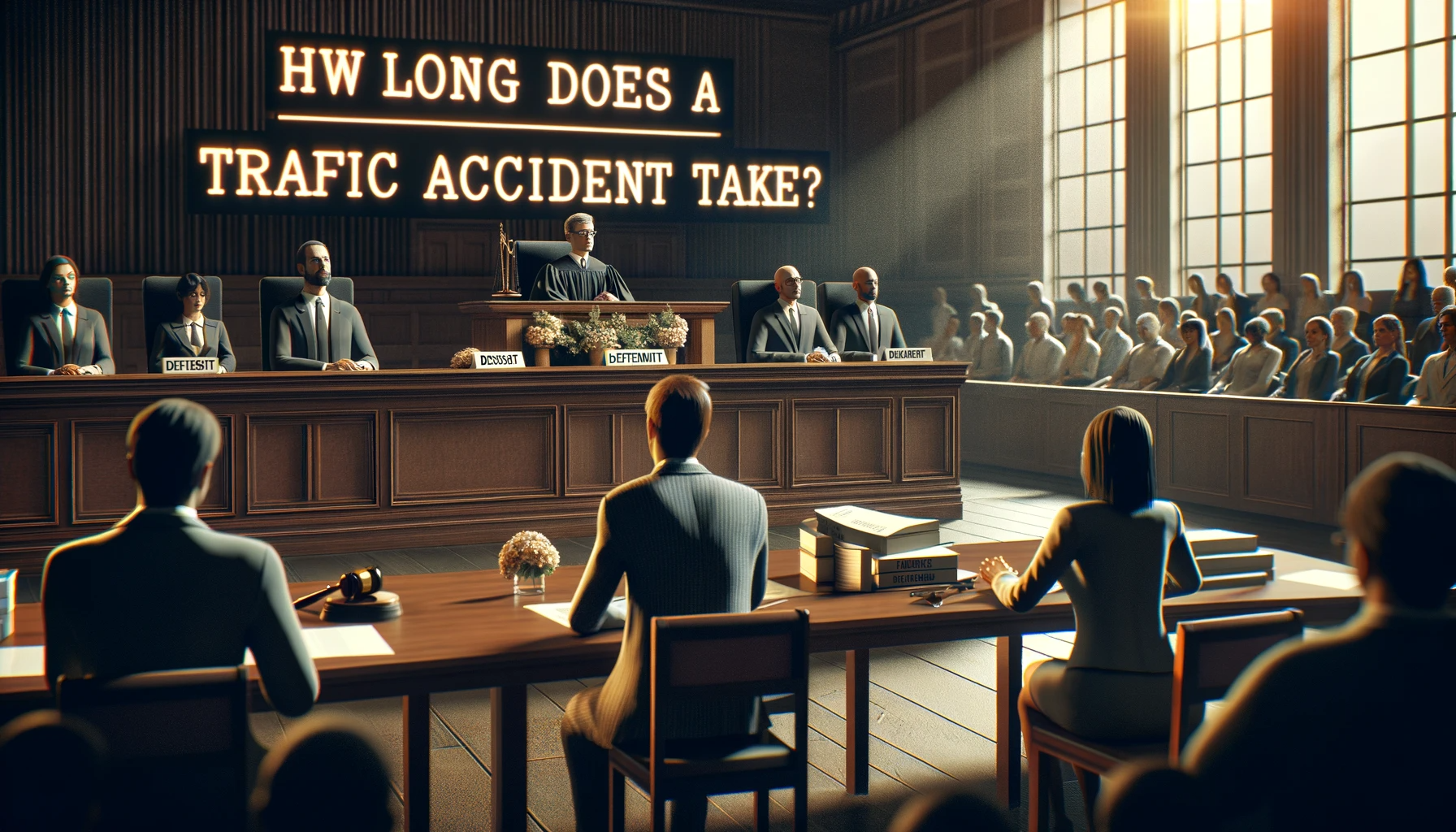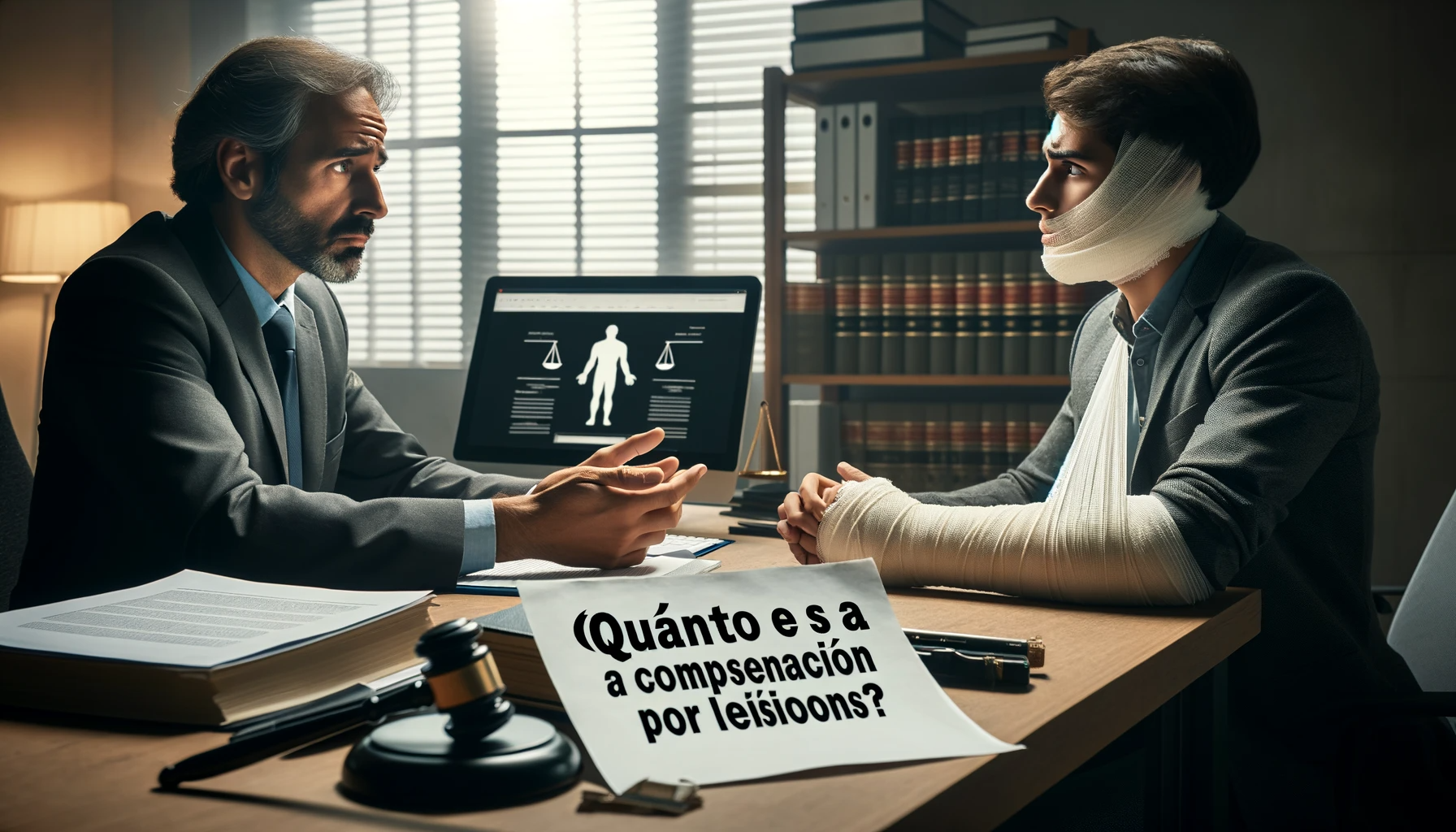Understanding the Basics of a Car Accident Lawsuit
Starting Points of a Car Accident Lawsuit
A car accident lawsuit begins when the plaintiff (the person who is injured) files a complaint against the defendant (the person believed to have caused the
Injury). The complaint outlines the legal basis for the claim and the damages sought by the plaintiff.
The Legal Process
Upon receipt of the complaint, the defendant is given a specified period to respond, usually within 30 days. This period may vary depending on the region's jurisdiction. During this time, the plaintiff and defendant gather evidence to support their respective claims in a phase known as discovery. This can include collecting documents, taking depositions, and hiring expert witnesses.
Negotiations and Settlements
Negotiations between parties often occur before a trial begins. Many
Car accident cases are settled out of court, which means the plaintiff and defendant agree on an amount of compensation to avoid a full trial process. If negotiations are unsuccessful, the case proceeds to trial, where a judge or jury will make a verdict.
Trial Proceedings
During a trial, both sides present their evidence and argue their case. The plaintiff must prove that the defendant was negligent and that their negligence caused the accident. They must also demonstrate the extent of the
Injuries suffered and any other losses incurred as a result of the accident.
Post-Trial Phase
Following the court's decision, the losing party can choose to appeal, which can potentially extend the duration of the lawsuit. If no appeal is made, the verdict is final, and the defendant is required to pay the awarded damages to the plaintiff.
Typical Timeline of a Car Accident Lawsuit
Initial Steps Post-Accident
Immediately following the accident, medical attention should be prioritized. Once health concerns are addressed, legal steps can begin. This involves reporting the incident to the insurance company, as well as potentially hiring a lawyer. During this period, evidence from the crash site is often collected and witnesses may provide statements.
Filing the Lawsuit
The actual process of filing a lawsuit happens after hiring an attorney, which can be anywhere from days to months following the accident, depending on circumstances. The attorney files a complaint or petition with the court against the defendant (the person responsible for the accident). This paper outlines the legal arguments about why the defendant is responsible, and what compensation the plaintiff is seeking.
Discovery Process
After the lawsuit is filed comes the discovery stage, where both parties can exchange information that pertains to the case. This can involve the exchange of documents, depositions and interrogatories. This phase can last several months, as each party builds their case using the information gathered.
Negotiations and Settlement
During or after the discovery stage, there may be attempts to settle the case out of court. Whether or not this is possible largely depends on the specifics of the case and the willingness of the parties involved. If a satisfactory agreement is reached, the case ends there.

Trial Phase
If a settlement cannot be reached, the case moves to trial. This phase can be lengthy, sometimes extending over several months or even years. During this time, both sides present their case and a decision is made by a judge or jury. After the ruling, there may be an appeal, which can extend the timeline further.
Factors Influencing the Duration of a Lawsuit
The Complexity of the Case
Various elements contribute to the complexity of a
Car accident lawsuit, which certainly impacts the duration of the process. For instance, cases involving severe
Injuries or multiple parties are often more complex and may take longer to resolve. A lawsuit can also be complicated by dispute over who was at fault in the accident or how much compensation is appropriate.
The Process of Discovery
The discovery phase of a lawsuit can significantly influence how long a lawsuit lasts. This phase involves the exchange of information between the parties involved in the lawsuit. Both sides gather evidence and examine the facts presented by the other party, which can include medical records, employment records, and other relevant documents. If these records are intricate or extensive, the discovery phase can extend for a considerable period of time.
Negotiation of Settlement
Another factor impacting the duration of a car accident lawsuit is the negotiation of the settlement. This can be an extended process if one party refuses to settle or if there are disagreements over the settlement amount. Some lawsuits are resolved quickly when both parties can agree on a fair settlement, while other times, negotiations can drag on causing delays.
Availability of Legal Professionals and Court Dates
Court schedules can also play a significant role in determining the length of a car accident lawsuit. Availability of judges, attorneys, and courtrooms can impact timelines, as scheduling conflicts can create delays. Additionally, preparation for court, including gathering evidence and building a case, is time-consuming. Depending on the workload of your attorney, this could also impact the timeline.
Appeals Process
Lastly, if the losing party decides to appeal the ruling, a car accident lawsuit's duration can extend significantly. The appellate courts have their own schedules and processes to follow, which often means additional months or even years added to the overall duration of the lawsuit.
Detailed Breakdown of Each Stage in a Car Accident Lawsuit
Filing of the Initial Complaint
The first stage in a car accident lawsuit is the filing of the initial complaint or petition. This is prepared by the injured party (the plaintiff) and formally served to the person responsible for the accident (the defendant). This document outlines the reasons why the plaintiff believes the defendant is liable for their
Injuries and the extent of the damages they are claiming. Once served, the defendant has a specific time period (usually 30 to 45 days depending on the state) to respond.
Discovery Process
Following this is the discovery phase, where both sides gather evidence to support their claims and defenses. This process can be long and complex, involving the exchange of documents, conducting depositions (interviews under oath), obtaining expert opinions, and investigating all the aspects related to the accident. The length of the discovery phase can greatly vary, based on the complexity of the case and the amount of evidence that needs to be reviewed.
Negotiation & Settlement Talks
Often, during or after the discovery process, both parties may start negotiations to settle the matter out of court. This involves discussions on the scope of injury, the liability of the defendant, and the amount of compensation. It’s common for mediation to occur at this stage. This is an informal meeting overseen by a neutral third-party mediator who facilitates productive conversation and tries to help both sides reach a resolution.
Trial Proceedings
If no settlement is reached, the case then proceeds to trial. Here, both parties will present their case before a judge or jury, who will then decide on the matter. The trial stage includes opening statements, presentation and cross-examination of witnesses, closing arguments, and finally, the verdict. The duration of the trial can vary greatly, from a few days to several weeks, depending on the complexity of the case and court schedules.
Post-Trial Motions and Appeals
After the verdict, there might be post-trial motions or appeals by the losing party. They can challenge the verdict, ask for a new trial, or move to have the judgment overturned. The duration of this stage is unpredictable as it depends on a variety of factors such as the basis for the appeal, the speed at which the court operates, and whether the case is heard by an appellate court. This is the final stage in the process and can add substantial time to the lawsuit.
The Role of Insurance Companies in a Car Accident Lawsuit
Understanding the Involvement of Insurance Companies
Insurance companies play a crucial role when it comes to a car accident lawsuit. Immediately after an accident, the involved parties usually contact their respective insurance agencies to report the incident. The insurance company then initiates an investigation to determine fault and the damages that have been incurred in the accident.
Insurance Companies and Claim Assessment
One of the primary functions of insurance companies in a car accident lawsuit is claim assessment. Once the claim is filed by their policyholder or a third party, insurance adjusters review the incident's circumstances, damage to vehicles, personal injury claims, and any other relevant expenses. This claim assessment process is critical as it influences the settlement amount.
The Negotiation Process
After assessing the claim, insurance companies typically participate in negotiation processes. They seek to reach an agreed-upon settlement with the claimant, aiming to close the case quickly and efficiently. However, these negotiations can be complex and drawn out, especially if the claimant disagrees with the insurance company's valuation of damages or apportionment of blame.
Role in Litigation
In cases where negotiations fail to result in an amicable settlement, the issue may proceed to litigation. If the policyholder is sued as a result of the accident, the insurance company often provides legal representation. Given this, the insurance company becomes actively involved in the lawsuit, providing defense strategies and arguing on behalf of the policyholder.
Payment of Settlements or Judgements
After the court has reached a verdict, the insurance company is typically responsible for paying the settlement or judgement up to the limits of the policyholder's coverage. In situations where the settled amount exceeds the policyholder's insurance limit, the policyholder might have to pay the difference out-of-pocket.
The Impact of Car Accident Lawsuit Duration on the Plaintiffs and Defendants
Effects on Plaintiffs' Financial Situation
When a car accident lawsuit lingers, it can deeply affect the financial status of the plaintiff. Medical expenses, loss of earnings due to inability to work, and the ongoing costs of physical therapy can all accumulate during the course of the suit. A lengthy lawsuit can cause substantial economic strain, as plaintiffs may find themselves unable to pay bills or meet other financial commitments.
The Emotional Impact on Plaintiffs
The emotional toll that a drawn-out
Car accident lawsuit takes on plaintiffs cannot be underestimated. The continuous stress and anxiety fueled by the uncertainty of the verdict can lead to depression, insomnia, and even post-traumatic stress disorder. Moreover, these emotional burdens can exacerbate any ongoing physical pain or disability resulting from the accident.
Implications for Defendants’ Reputation and Personal Life
On the other side, defendants in a car accident lawsuit also suffer from extended litigation duration. Prolonged legal proceedings can harm their reputation, particularly if they are professionals whose career choices are connected with public perception. Apart from that, these lawsuits can seriously disrupt personal life, causing stress and straining relationships with family and friends.
Financial Consequences for Defendants
Much like the plaintiffs, defendants also face financial pressures in prolonged car accident lawsuits. They may have to bear the ongoing costs of legal representation, which can place a tremendous strain on their finances. In addition, if they lose the case, they may be compelled to pay hefty compensation to the plaintiff, adding further to their financial woes.
Impact on Legal Resources
Lastly, a long-running car accident lawsuit creates a burden on the legal system. It ties up court time and resources that could be allocated to other matters, causing delays and backlogs. In addition, both parties’ legal teams must spend more time and resources on a case that continues without resolution.
How to Expedite Your Car Accident Lawsuit

Gather Comprehensive Evidence
Start by diligently collecting all pieces of evidence following the accident. This can include pictures of the accident scene, medical reports describing your
Injuries, as well as any documents about your vehicle's damage or loss. Police reports and witness testimonies can also significantly bolster your claim. Ensure you have a complete record of any time taken off work and income lost due to the accident, alongside all other related expenses.
Enlist a Competent Attorney
Hiring an experienced
Car accident lawyer can help expedite your case. They understand the workings of the legal system and can guide you through each step of the process efficiently. An attorney can streamline the gathering of evidence and negotiation with insurance companies, and fight for your rights if a trial becomes necessary.
Act Fast
Most states have a specific time limit within which you must file a lawsuit, known as the statute of limitations. Commence your suit as soon as possible to avoid unnecessary delays. Quick action also ensures that evidence remains fresh and witnesses' memories of the event are still clear.
Consider Settlement Opportunities
Although not all cases will end in settlement, it's often the fastest way to close a lawsuit. Consider negotiation or mediation. They are faster than a court trial and can result in reasonable compensation for your damages.
Stay Organized
Ensure all your case documents are well-organized and easily accessible. This includes maintaining a timeline of events, keeping a file of correspondence from insurers or opposing attorneys, as well as receipts for expenses incurred due to the accident. This not only helps you stay on top of your case but also saves time when your attorney requires information.
Conclusion
The duration of a car accident lawsuit can vary widely depending on various factors such as the complexity of the case, the court's schedule, and the willingness of both parties to negotiate. While some cases may be resolved relatively quickly through settlements, others may take months or even years to reach a resolution.
Look for an attorney who has the right legal resources for your legal needs.
Contact us here on the
Warmuth Law website or through our hotline 888-517-9888.
Frequently Asked Questions (FAQ's)
1. How long does a Car accident lawsuit typically last?
The duration of a car accident lawsuit can vary greatly depending on the circumstances of the case. Some cases may be resolved in a matter of months, while others may take years to reach a resolution.
2. What factors can affect the length of a Car accident lawsuit?
Several factors can affect the length of a car accident lawsuit, including the complexity of the case, the number of parties involved, the court's schedule, and the willingness of both parties to negotiate.
3. Can I speed up the process of a Car accident lawsuit?
While you cannot control all aspects of the legal process, there are some steps you can take to potentially speed up the process, such as providing prompt and thorough documentation of the accident and cooperating with your attorney.
4. What happens if a Car accident lawsuit takes too long?
If a car accident lawsuit takes an unusually long time to resolve, you may want to discuss your options with your attorney. They may be able to provide guidance on how to expedite the process or pursue alternative avenues for resolution.
5. Is there a time limit for filing a Car accident lawsuit?
Yes, there is a time limit, known as the statute of limitations, for filing a
Car accident lawsuit. The statute of limitations varies by state, so it is important to consult with an attorney to understand the specific time frame in your jurisdiction.











